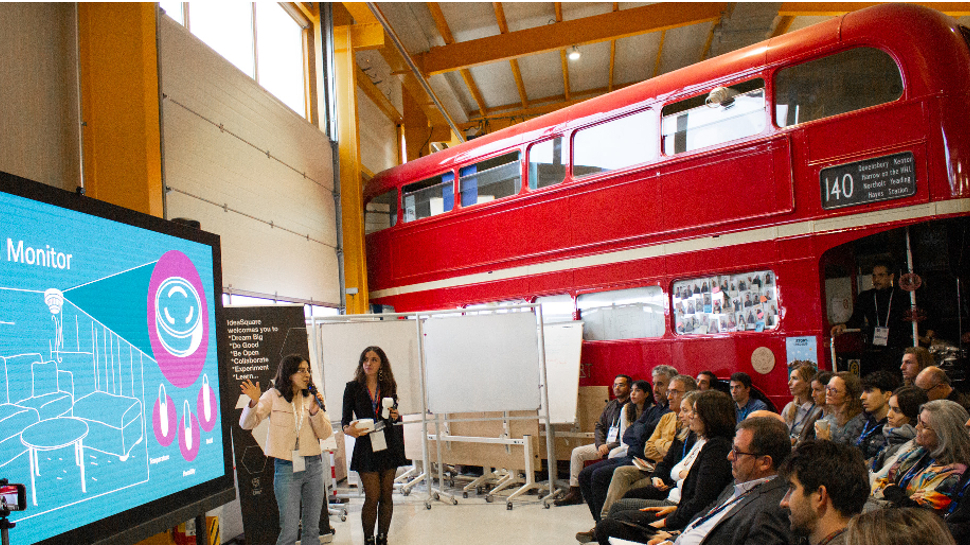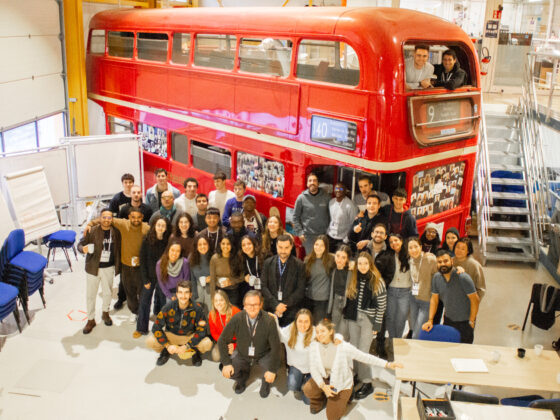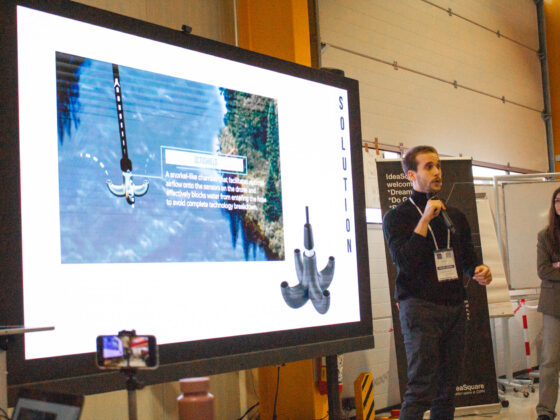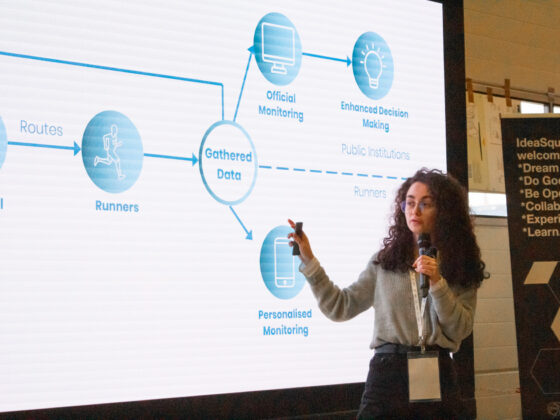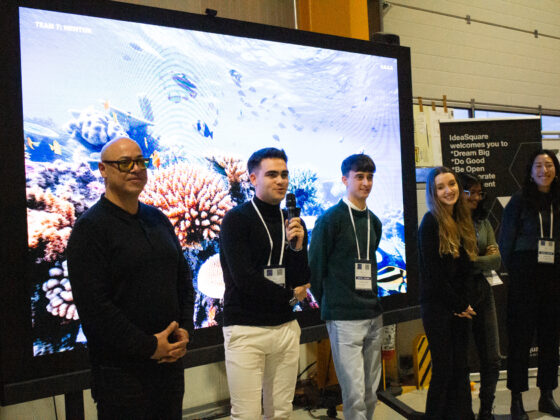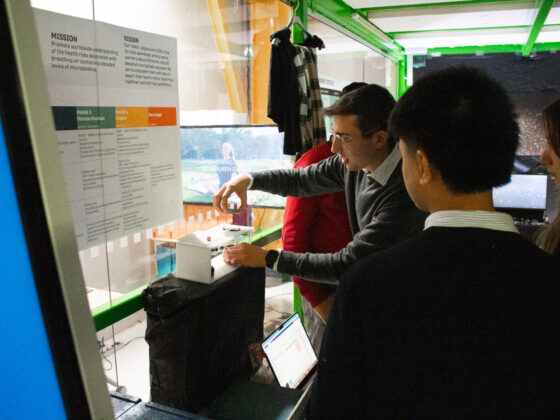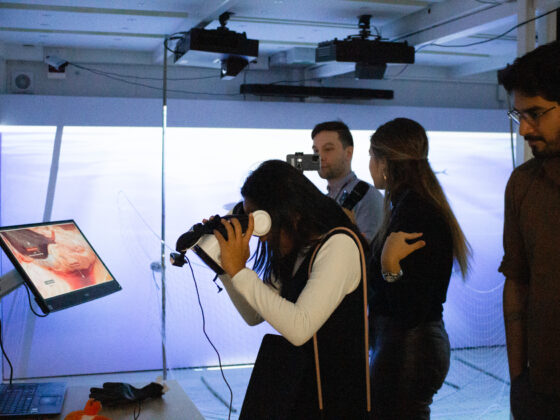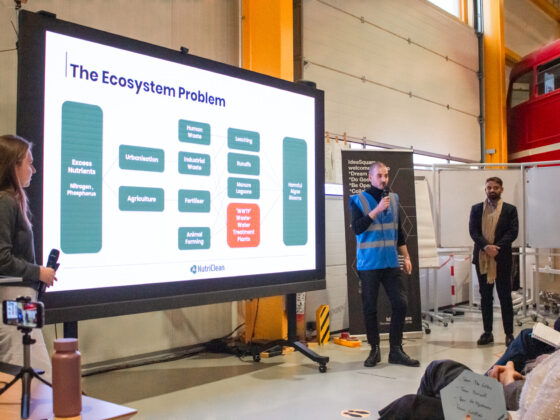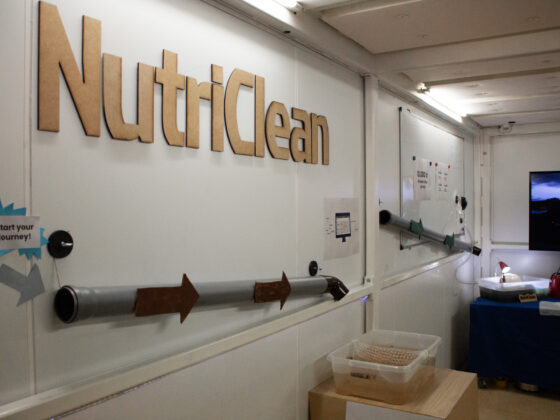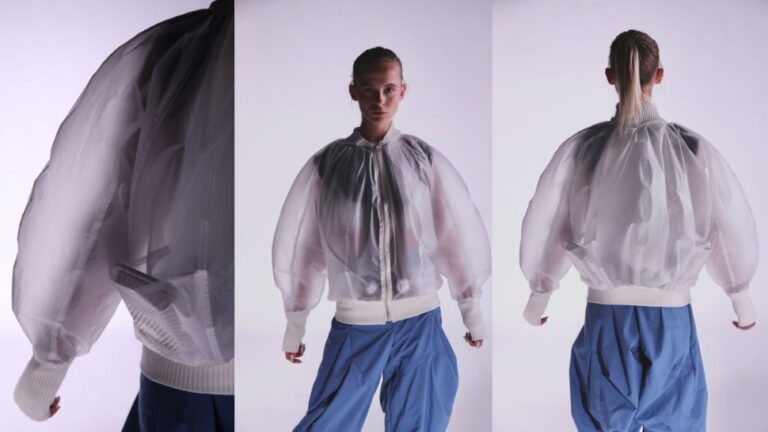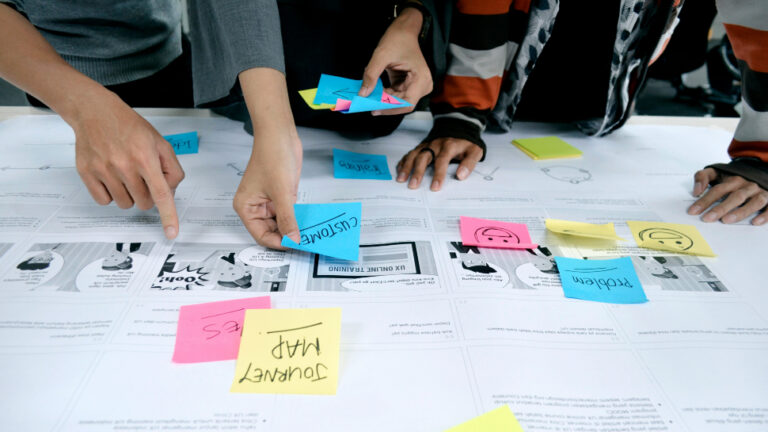The Challenge Based Innovation Fusion Point (CBI-FP), a program under ATTRACT Academy, has finished its second round, where almost 50 students from 14 nationalities worked in multidisciplinary teams for 15 weeks to create solutions to real societal problems. The Final Gala was held on December 7th at CERN IdeaSquare, and the eight student teams had the opportunity to showcase their prototypes.
The CBI-FP program, which is coordinated by Esade in partnership with IED Barcelona and UPC, contributes to the design and delivery of innovative proof of concept and functional prototypes applying advanced technologies to societal impact. In this current edition, students have worked with some of the ATTRACT technologies from phase 2: IALL, H3D-VISIOnAiR, PIPE4.0 and SNIFFIRDRONE.
Get to know more about the eight teams which have worked around some specific United Nations Sustainable Development Goals (SDGs): SDG 3.9: reduce Illnesses and death from Hazardous Chemicals and Pollution, SDG 11.6: reduce the Environmental Impact of Cities, SDG 14.1: reduce Marine Pollution, and SDG 14.3: reduce Ocean acidification:
- Team BridgeMan: “VisiFibre”, making the invisible impossible to ignore. This revolutionary device reshapes how samples are collected and measures microplastic concentrations, which is crucial in preventing respiratory issues and lung diseases stemming from prolonged exposure. By systematically gauging microplastic levels in factory environments, it is possible to identify trends and empower textile workers with insights for a healthier and safer life. VisiFibre is a lifeline, ensuring those behind textiles get the safety they deserve.
- Team Curietors: “NutriClean” revolutionizes water treatment with cutting-edge sensor technology that curbs nutrient pollution, the culprit behind deadly algae blooms. By integrating real-time monitoring into existing systems, students ensure peak performance, paving the way to meet the EU’s 2045 goal for complete tertiary treatment.
- Team Meitner: “FishWise AI”. A silent problem plagues the global aquaculture industry, causing up to 30% of farmed fish to die annually. This translates to over $70 billion in losses and threatens the livelihoods of millions, especially in developing regions. The cause: unidentified mass fish mortalities, outpacing current diagnostic capabilities. FishWise is an AI-powered fish health monitoring system that continuously tracks fish health, combining underwater AI cameras, IALL adaptive lens, and automated isolation with H3D-VISIOnAiR hyperspectral imaging for rapid disease detection.
- Team The Galileis: “GuardianAir”, from Mold to Gold. This is a comprehensive solution to the pervasive mould issue in the UK. It comprises two cutting-edge solutions designed to tackle it at its roots. The GuardianAir Sensor acts like a smoke detector for mould, preemptively identifying and preventing environmental conditions conducive to mould growth, and a revolutionary tool, a handheld device for mould detection. This device skillfully searches, locates, and classifies mould within walls, providing real-time insights for targeted remediation.
- Team The Feynmans: “EVolve”. New Delhi is a city with diverse cultures and backgrounds. Unfortunately, it is also the most polluted city in the world which affects millions of lives. The majority of this pollution is concentrated on the road. 67% of registered vehicles in Delhi are 2-wheelers making them the leading contributor to vehicle emissions. To decrease emissions from motorcycles and scooters, it is important to adopt a comprehensive strategy to shift towards electric vehicles and drivers play a pivotal role in this initiative. EVolve is a filter that can be attached to any helmet and is designed to purify polluted air and using PiPe 4.0 technology, collects samples to assess road air quality.
- Team Maxwell: “Clean Horizon”. In the Niger Delta, 13 million barrels of crude oil have been spilled since 1958 from over 7000 incidents. Oil pollution has denied residents access to clean water, hurt farming and fishing, and increased violence. With SNIFFIRDRONE and OctoShield, it will be possible to empower the local community with technology and data. The snorkel-shaped chamber allows the detection of gases that are very close to the water surface, blocking water from entering the hose while optimizing airflow.
- Team Newton: “O.R.C.A”. In a world threatened by the silent invasion of microplastics in the oceans, this is a revolutionary solution designed for researchers, scientists, and academics who are dedicated to unravelling the true extent of the microplastic invasion. It comprises the following: MARLIN, which serves as a hub and control centre, facilitating seamless data transmission and wireless energy transfer, and BEAMOs, which collect microplastic samples and vital environmental data. This could empower researchers to gather data consistently and comprehensively on a larger scale, expediting the identification and mitigation of unknown and threatful microplastics in areas facing significant environmental damage.
- Team 8 The Feynmans: “Run4lr”, making the air visible. The project aims to monitor runners’ exposure to air pollutants in Barcelona. By providing data to public institutions and open-source databases, the goal is to enhance the precision of existing models, aid in the formulation of effective regulations, and contribute to public awareness. It also aims to create a personalized health advice platform for users to mitigate potential health risks from pollution, and by establishing a real-time data social media platform, the project also seeks to empower individuals to make informed decisions about their routes, promoting a healthier lifestyle in the face of air pollution.
More information about the CBI-FP program here.
